Regular blood tests for cats are vital for keeping your cat healthy since they provide important information about their overall health and can identify any abnormalities early on. Similar to human medicine, these tests help veterinarians diagnose a wide range of diseases, from small infections to chronic disorders. Any cat owner who is committed to providing proactive pet care should be informed of the various blood tests for cats and their typical results. In this blog post, we will review the many blood tests performed in feline medicine to help you better understand your cat’s health. We will also explain what each test measures and discuss their usual ranges.
Types Of Blood Tests for Cats
Blood tests are important diagnostic tools that veterinarians use to evaluate and maintain feline health. The basic types of blood tests are the Complete Blood Count (CBC) and the Biochemistry Panel. The complete blood count (CBC) quantifies many blood constituents, such as red blood cells (RBCs), white blood cells (WBCs), and platelets.
Complete blood count (CBC)
Red Blood Cells (RBC): Assesses anemia or polycythemia.
White blood cells (WBC) indicate infection, inflammation, or leukemia.
Platelets: Determines clotting ability.
Biochemistry Panel:
- Renal Function (BUN and Creatinine): Detects renal disease.
- Liver Enzymes (ALT, AST, and ALP): Determines liver health.
- Blood glucose tests for diabetes.
- Electrolytes (sodium, potassium, chloride): Assesses hydration and balance.
- Proteins (Albumin, Globulin): Checks nutritional status and immunological function.
Thyroid Function Tests:
Total T4 (Thyroxine) detects hyperthyroidism.
FeLV/FIV Test:
Feline Leukemia Virus (FeLV) and Feline Immunodeficiency Virus (FIV): Viral infection screening tests.
Electrolyte Panel:
Sodium, potassium, and chloride: Assesses hydration, acid-base balance, and kidney function.
Urinalysis:
Often used with blood testing to provide a thorough picture of kidney and urinary tract health.
Normal Values of Cat Blood Tests
Complete Blood Count (CBC):
Red Blood Cells (RBC): 5.0-10.0 x 10^6 cells/µL
White Blood Cells (WBC): 5,500-19,500 cells/µL
Hemoglobin: 8-15 g/dL
Hematocrit (PCV): 29-48%
Platelets: 175,000-600,000/µL
Biochemistry Panel:
- Blood Urea Nitrogen (BUN): 14-36 mg/dL
- Creatinine: 0.6-2.4 mg/dL
- Alanine Aminotransferase (ALT): 10-100 U/L
- Aspartate Aminotransferase (AST): 10-100 U/L
- Alkaline Phosphatase (ALP): 10-90 U/L
- Total Protein: 5.2-8.8 g/dL
- Albumin: 2.2-4.2 g/dL
- Globulin: 2.3-5.3 g/dL
- Glucose: 70-150 mg/dL
- Calcium: 8.2-11.6 mg/dL
- Phosphorus: 2.6-6.0 mg/dL
Electrolyte Panel:
- Sodium: 145-158 mEq/L
- Potassium: 3.5-5.8 mEq/L
- Chloride: 107-129 mEq/L
Thyroid Function Test:
- Total T4 (Thyroxine): 0.8-4.7 µg/dL
- Preparing for a Blood Test
- Fasting: May be required for 6-12 hours before the test.
- Stress Reduction: Keeping the cat calm can help ensure a smooth blood draw.
Blood Test Costs For Cats
Cost of cat blood tests could differ widely based on a variety of variables, including the kind of test, the area, and the clinic. Here are some cost ranges for standard test for blood in cats.
- Complete Blood Count (CBC): Typically can range from $50 to $100. The test tests various blood components that include white blood cells and platelets.
- Biochemical profile typically is priced between $80 to $150. The test examines the functions of organs, such as the kidneys, liver and pancreas. It also evaluates electrolyte levels.
- Thyroid Function Test It is generally priced between $50 to $150. This test evaluates thyroid hormone levels to determine hypothyroidism, hyperthyroidism, or.
- Feline Leukemia Virus (FeLV) and Feline Immunodeficiency Virus (FIV) Tests typically vary from $30 to $60. The tests look for infections caused by viruses that could cause a cat’s immune system to be affected.
- Senior Cat Blood Panel The typical price is between $100-$200. The comprehensive panel comprises the CBC biochemical profile as well as other tests that are specifically tailored to older cats.
- The Pre-Anesthetic Blood Test The typical price is between $40-$100. The procedure is carried out prior to anesthesia to warrant that the cat is fit sufficient to undergo surgery.
Chem 17 blood test in cats
It is the Chem 17 Blood test sometimes referred to a comprehensive chemistry panel is a standard diagnostic tool in the field of veterinary medicine. It usually includes 17 different tests that test different aspects of the health of a cat, especially the function of organs and metabolic state. These are the typical components found in the Chem 17 test:
- Albumin (ALB)
- Alkaline Phosphatase (ALKP)
- Alanine Aminotransferase (ALT)
- Amylase (AMYL)
- Bilirubin, Total (TBIL)
- Blood Urea Nitrogen (BUN)
- Calcium (CA)
- Cholesterol (CHOL)
- Creatinine (CREA)
- GLU (GLU)
- Phosphorus (PHOS)
- Potassium (K)
- Total Protein (TP)
- Sodium (NA)
- Chloride (CL)
- Globulin (GLOB)
- Magnesium (MG)
The tests benefit in evaluating the health of kidneys, livers pancreas, pancreas and other organs, in addition to the cat’s electrolyte balance as well as its general metabolic condition.
Preparing for a blood test
To achieve appropriate results for a blood test, your cat may need to fast for 6-12 hours prior. Keeping your cat relaxed and stress-free is also vital for a successful blood draw. The blood sample will be collected by the veterinarian or veterinary technician, usually from a vein in the cat’s leg or neck, in a quick and relatively painless procedure.
Once the blood tests are completed, your veterinarian will go over the results with you, discussing any abnormalities and their implications for your cat’s health. These findings may lead to recommendations for additional testing or therapies. Regular blood tests are essential for keeping your cat healthy, as they enable for early detection of potential health problems and effective monitoring of chronic diseases.
Benefits Of Blood Tests For Cats
Early Disease Detection:
Before they manifest clinically, blood tests can detect the early warning symptoms of conditions including renal disease, liver disease, diabetes, thyroid problems, and infections. Better treatment outcomes are frequently the result of early identification.
Keeping an eye on persistent conditions:
Regular blood tests help track the course of chronic illnesses in cats, such as diabetes or renal disease, and the efficacy of treatment regimens, enabling prompt modifications.
Screening Prior to Anesthesia:
Blood tests may evaluate a cat’s general health before to surgery, ensuring the cat is suitable for anesthesia and lowering the possibility of problems during and after the treatment.
Evaluations of nutrition:
Blood testing can identify vitamin and mineral excesses or deficiencies, enabling dietary changes to guarantee optimum health.
Initial Health Information
Frequent blood testing establishes a baseline for your cat’s health, which makes it easier to identify deviations from the norm in later testing. This will be especially helpful when your cat gets older.
Identifying infections and inflammations:
Blood tests can detect immune system abnormalities, infections, and inflammations. They can also reveal the underlying reasons of symptoms including weariness, fever, and appetite loss.
Recognizing poisons and toxins:
Blood tests can be used to identify the substances and determine the appropriate course of therapy if a cat is suspected of eating poisons or toxins.
Conditions unique to a breed and genetics:
Certain blood tests can identify diseases or genetic problems specific to a breed, which enables early detection and treatment of potential health issues.
Checkup for General Health
Frequent blood tests are an important part of normal veterinary visits, allowing for a full assessment of your cat’s overall health.
Hormonal Disproportions:
Hormonal imbalances, such as hypo- or hyperthyroidism, are common in cats and can have a significant detrimental impact on their quality of life if left untreated. Blood testing can help detect these abnormalities.
FAQS
How long does it take for the results of a cat blood test?
Cat blood test results might take anything from a few hours to many days. Certain tests can be performed internally within the veterinarian clinic for faster results, while others may need an outside laboratory.
Can a Cat’s Blood Test Detect Cancer?
Detection: Blood tests can reveal abnormalities such as elevated liver enzymes, high white blood cell counts, or anemia, which can aid in determining whether a cat has cancer. They are not, however, infallible in the diagnosis of cancer. To confirm malignancy, further diagnostic procedures such as biopsies and imaging (X-rays, ultrasounds) are usually required.
How long for cat blood test results?
The cat blood test outcome typically range from one hour to a few days, based on the test and if the analysis is conducted at the lab in-house or transferred to a third party laboratory.
What are the costs for blood tests for cats?
Cat blood tests generally can range from $50-$200 depending on the kind of test as well as the vet clinic. Comprehensive panels, such as the Chem 17, can be more expensive than this price range.
How many different kinds of cat blood tests are available?
Typical kinds
- The Complete Blood Count (CBC) counts the red, white, and platelet components of blood.
- The Biochemistry Panel evaluates electrolyte levels and organ function.
- Thyroid Panel: Evaluation of thyroid gland activity.
- The electrolyte panel measures the concentrations of important electrolytes, such as sodium, potassium, and so on.
- Symmetric Dimethylarginine, or SDMA, is a precursor to renal injury.
- Blood Glucose: This test gauges blood sugar levels, which is essential for determining diabetes diagnosis.
- Serum Protein Electrophoresis: Distinct protein types inside the bloodstream are separated.
- Tests for hormones: Seek for imbalances in hormones (e.g., insulin and cortisol).
- Tests for infectious diseases: Looks for illnesses like FeLV, FIV, and others.
- Blood Clotting Tests: Ascertain the blood’s ability to clot successfully.
How much does a blood test for cats cost?
Here is an approximate cost breakdown:
- Kidney function (SDMA): $30 to $50
- Thyroid Yield (T4): $30–$50
- $10–$20 for a glucose test (for diabetes)
- Screening for infectious diseases (e.g., FIV, FeLV): $40 to $80
- Tests for hormones (such as insulin and cortisol): $50 to $100
- Electrophoresis of Serum Proteins: $100 to $200
- Tests for blood clotting: $50 to $100
Conclusion
The regular blood test for cat owners is vital to preventative pet care and offer additional vital information on their general health and helping to identify early signs of possible issues like liver disease, kidney disease or diabetes, as well as infections. These tests, such as those of the Complete Blood Count (CBC) and Biochemistry Panel, benefit veterinarians diagnose a diverse range of illnesses and monitor chronic illnesses as well as assess the appropriateness of anesthesia and also evaluate nutrition health. Knowing these tests and their normal scopes allows pet owners to recognize their importance in ensuring the health of their pet.
Making sure you have regular blood tests could lead to improved treatment outcomes and enhanced standard of living for your pet. While costs may vary but the advantages of detecting health issues early and prompt treatment of health problems far surpass the cost. Setting a baseline of your cat’s health with regular blood tests allows you to spot and correct any deviations in the early stages, greatly improving the longevity of your cat and its overall health. Always consult your vet to determine the most appropriate blood tests for your cat’s breed, age and overall health.







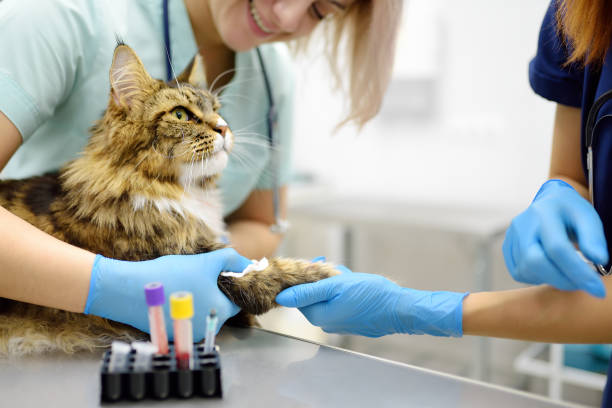
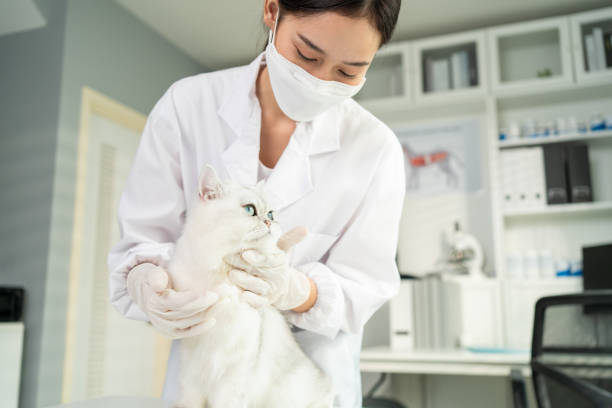
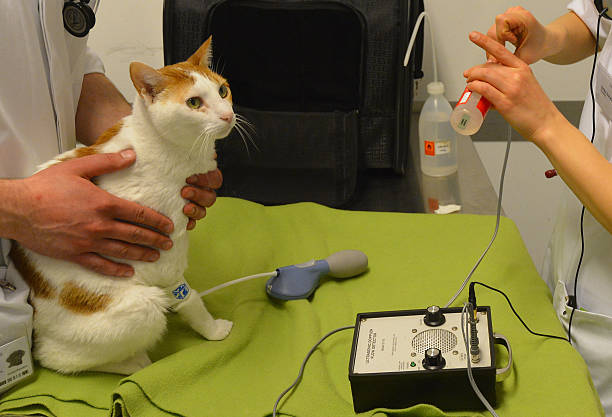
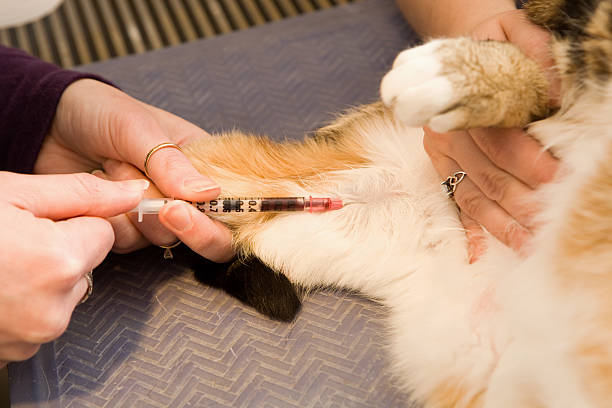
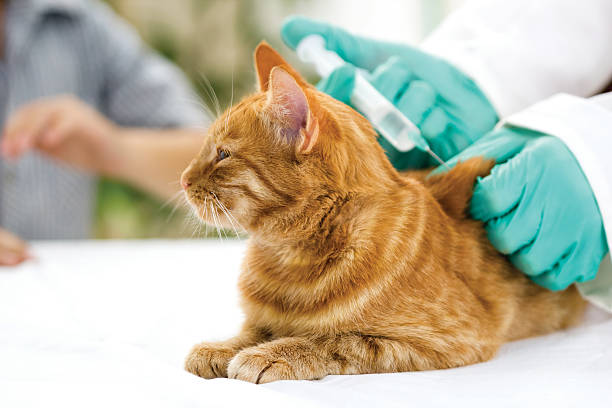




Ny weekly I appreciate you sharing this blog post. Thanks Again. Cool.